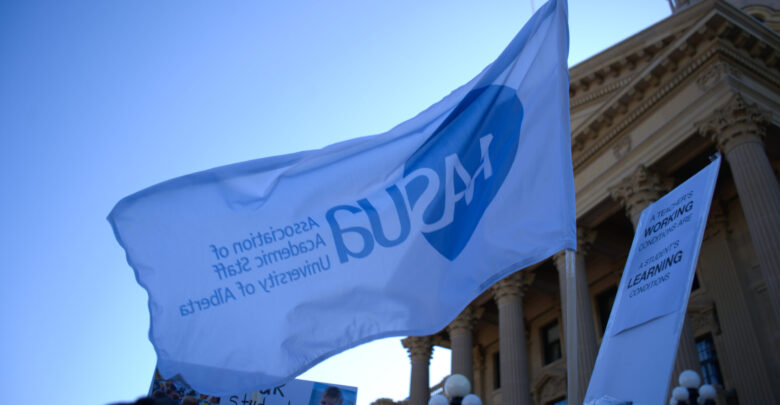AASUA members ratify tentative agreement with U of A
"We have grave concerns as association that there were aspects of the agreement that don't achieve what we wanted to achieve," Swaters says.
 Leah Hennig
Leah HennigAssociation of Academic Staff at the University of Alberta (AASUA) members have voted to ratify the tentative agreement with the university.
If ratified by both bargaining parties, the agreement will become the renewal collective agreement. The Board of Governors (BoG) will hold the final ratification vote.
80 per cent of AASUA members who voted voted yes. Voter turnout was 65 per cent with 2,715 votes being cast from a total of 4,172 eligible AASUA voters.
In an interview with The Gateway, AASUA President Gordon Swaters said the results of the vote “were not unsurprising.”
“We knew in advance from our member engagement activities … that the members valued their benefits plan very highly,” Swaters said. “And we knew, once we had accomplished that, that the members wanted to have a say in whether the surrounding agreement was acceptable or not.”
Concerns about unaddressed bargaining goals
He noted that the 80 per cent yes vote is lower than historical ratification votes that have typically seen yes votes reach around mid 90 per cent. According to Swaters, this indicates that despite 80 per cent of voters voting yes, “there were still some members, to a greater degree than we have typically seen, that were unhappy with the outcome.”
“The vote actually reflects that it was a less enthusiastic endorsement of the agreement than we typically get for ratification votes in the past.”
The tentative agreement did not achieve all of ASSUA’s bargaining goals. Among these include correcting the impacts of inflation on salaries and better job security for academic teaching staff on short-term contracts.
“We have grave concerns as an association that there were aspects of the agreement that don’t achieve what we wanted to achieve.”
Swaters said not addressing these bargaining goals will have a “gradual but continuing negative impact” on the student learning experience as the university will “be unable to recruit and retain the best teachers and the best researchers to maintain our top four in Canada, top 100 in the world stature.”
Additionally, Swaters emphasized that bargaining is an incremental process.
“We are just but one step in a long sequence of incremental steps to creating a more fair and just workplace.”
Final ratification vote to be held by BoG
On May 7, AASUA filed an unfair labour practice complaint at the Alberta Labour Relations Board (ALRB) against the university. The complaint claims that the university did not act in good faith during informal mediation between March 25–27. The complaint has yet to be adjudicated by the ALRB.
“We are preparing for our case in front of the ALRB,” Swaters said.
Moving forward to the final ratification vote, he said AASUA is feeling confident in the upcoming steps and he’s not anticipating any problems.
The U of A provided an emailed comment to The Gateway on October 29.
“The tentative agreement between the university and AASUA supports the university’s priority of providing a world-class learning environment and student experience by recognizing the valued contributions academic staff members bring to the university, and the need for a sustainable agreement that considers the interests of the broader university community,” the comment read.
“The university thanks both bargaining teams for their work in reaching a negotiated settlement, and is encouraged by AASUA’s ratification.”
On October 31, the university announced that BoG ratified the agreement. The announcement stated that the agreement will now be submitted the ALRB.
UPDATE: This article was updated on November 2 at 10:50 p.m. to include that the Board of Governors had ratified the agreement.




